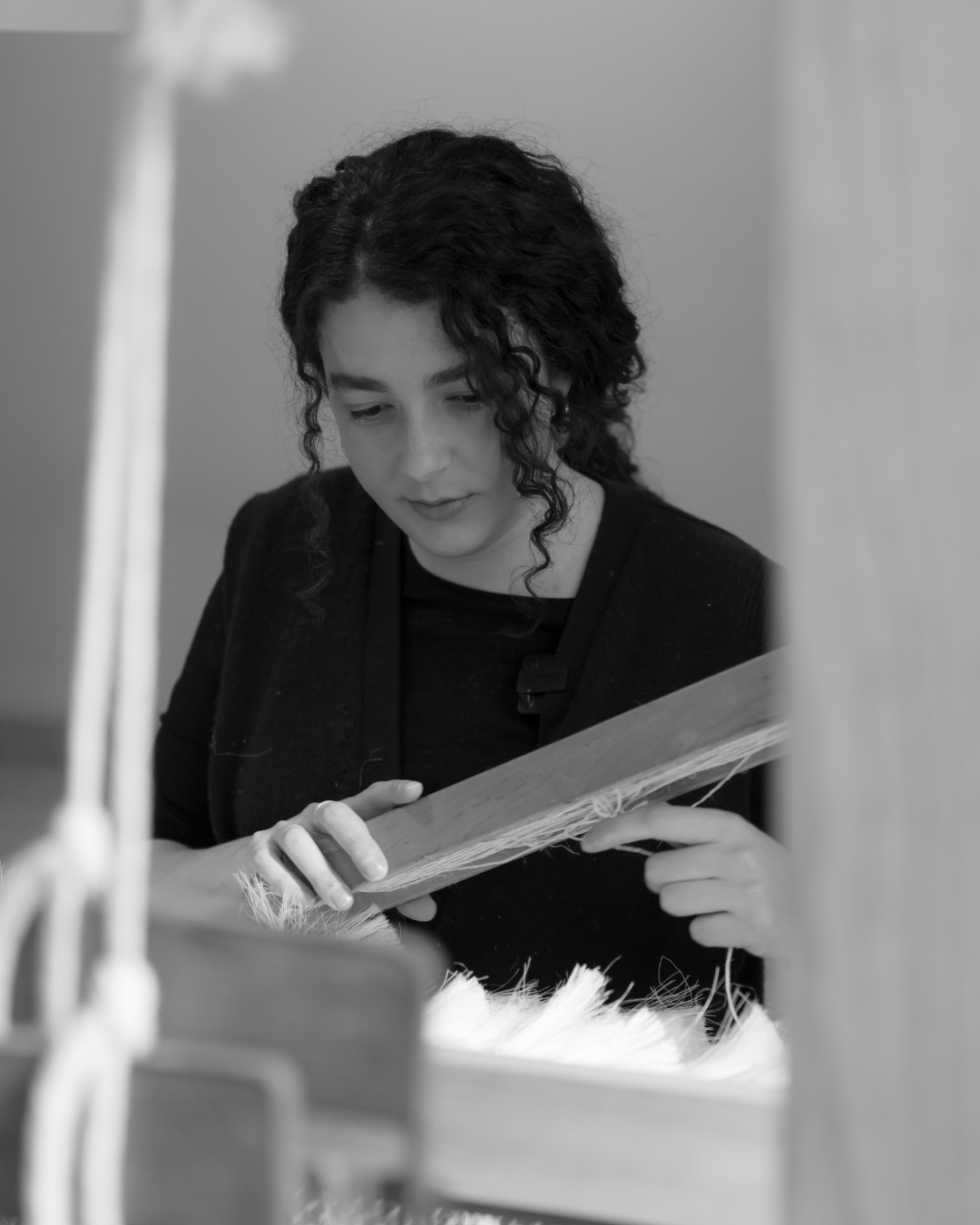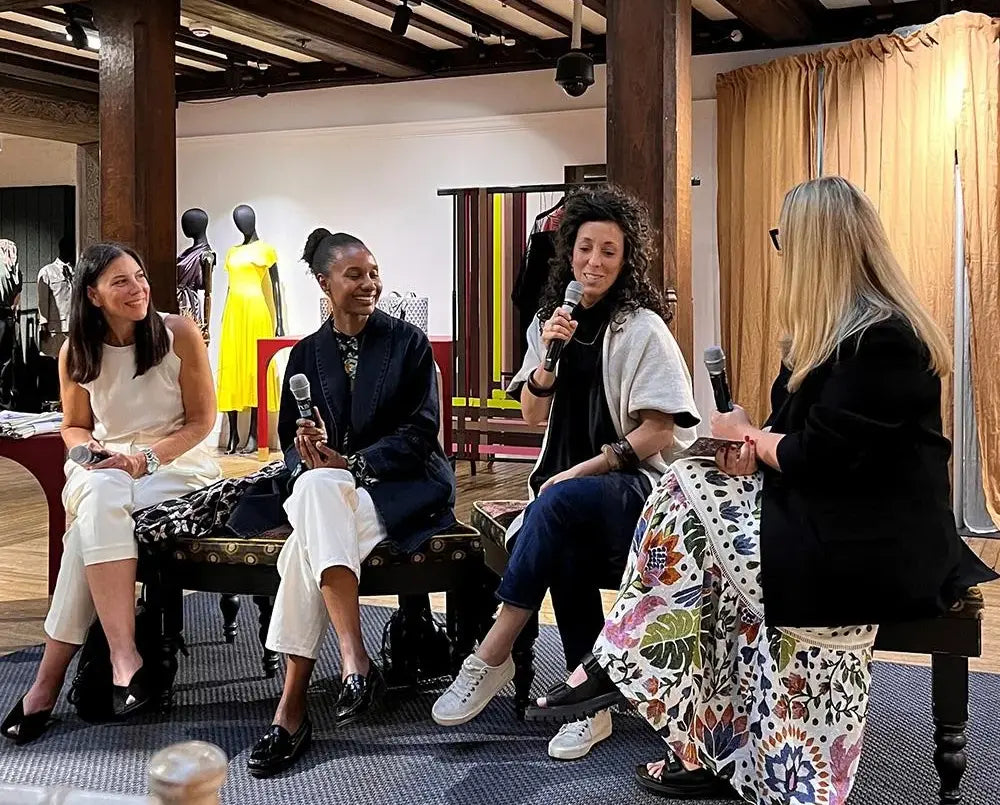
Liberty and PBP,a match made in maker heaven
By: Alison Phillips, Co-Founder of Powered by People
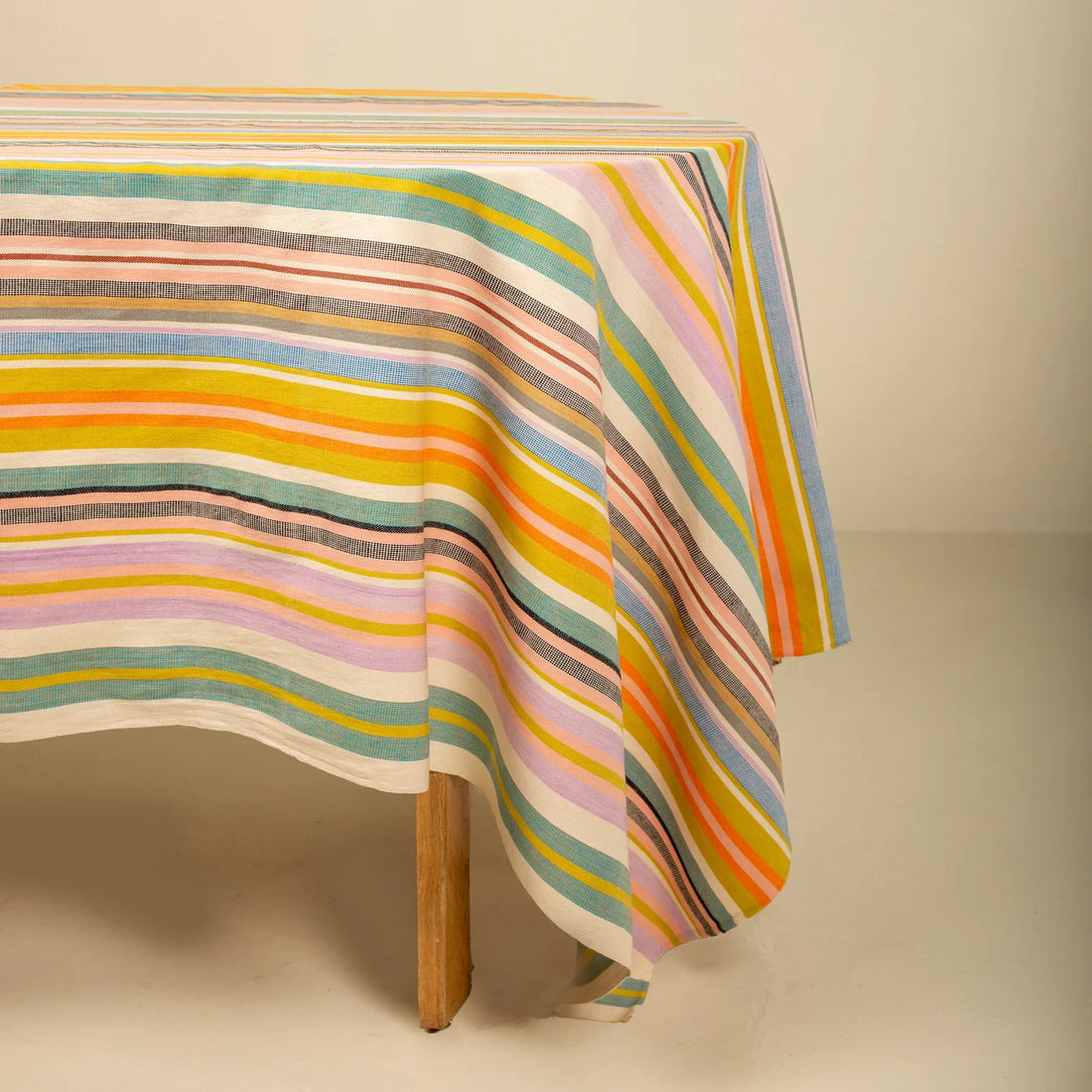
Siafu Home
Could Arthur Lasenby Liberty, best known for the iconic London department store, actually be the forefather of upcycling? It’s a thought I had during my recent talk at London Design Week at Liberty’s now famous Tudor headquarters. There I was, walking on century-old floors which, it turns out, were made from oak repurposed from the decks of two ancient three-decker battleships, The HMS Impregnable and HMS Hindustan. I could literally feel the history and craftsmanship underfoot. And I had to wonder, maybe our plucky startup, launched during the pandemic, had far more in common with this 148-year-old institution than I could ever imagine.
When Powered by People (PBP) started in 2021, its mission was clear: help makers around the globe earn the exposure and business they deserved. A lack of access to international economies and financing had stunted their growth, while offshoring manufacturing dealt them another blow. Not to mention, mass production had poked a generational hole in the transfer of artisanal skills—the same skills that Liberty staked its name on when it opened in 1875, bringing wares from around the world back to London.
Despite these prevailing challenges, Powered by People realized that technology provided a path forward. Even the most rural areas in the global south are digitally connected and most makers have at least a smartphone. At the same time, as the buyers at Liberty know well, consumer sentiment has shifted. Shoppers are demanding to know the stories behind the products they buy—they want to know who, where and how they are made. Plus, ESG regulations are coming faster than ever. As a result, department stores like Liberty are evolving how they do business. Which is where Powered by People comes in. We created PBP as a wholesale platform that can connect global makers of high-quality, sustainably-produced goods with conscious retailers, both big and small.
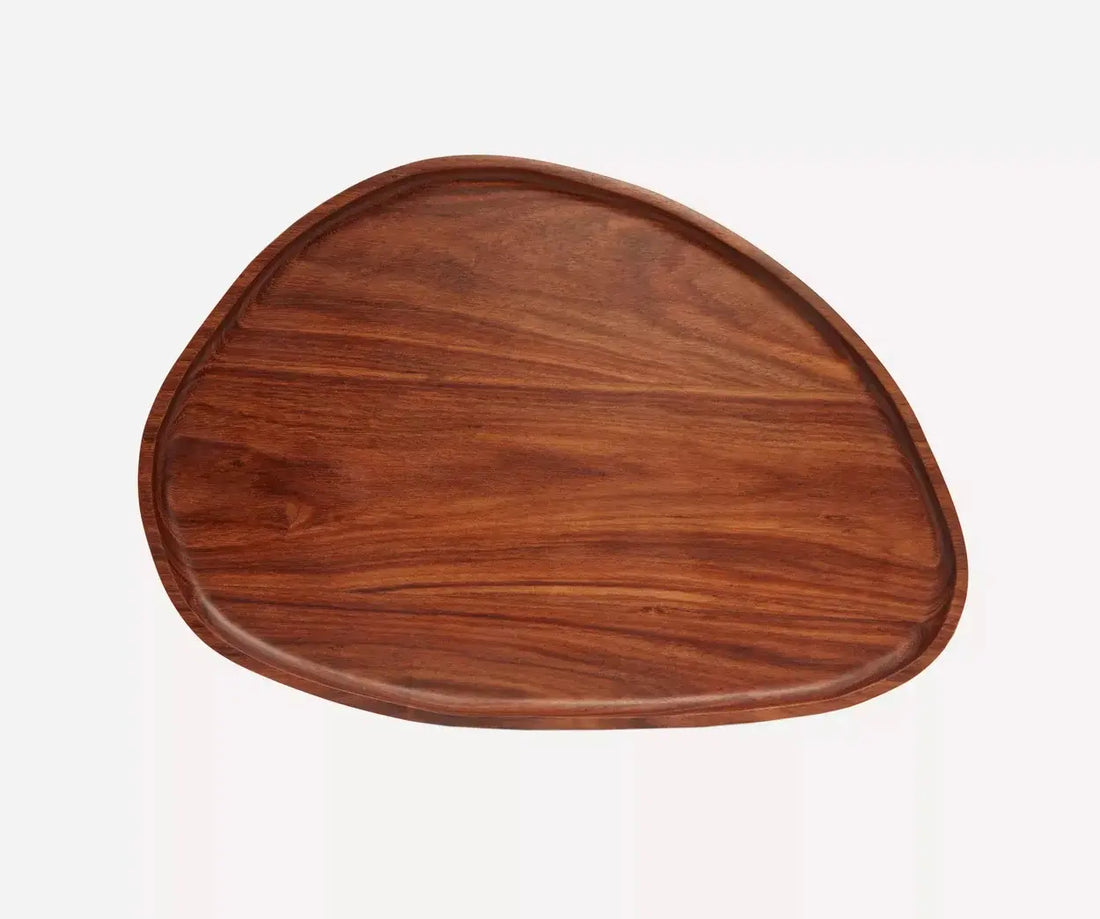
Itza Wood
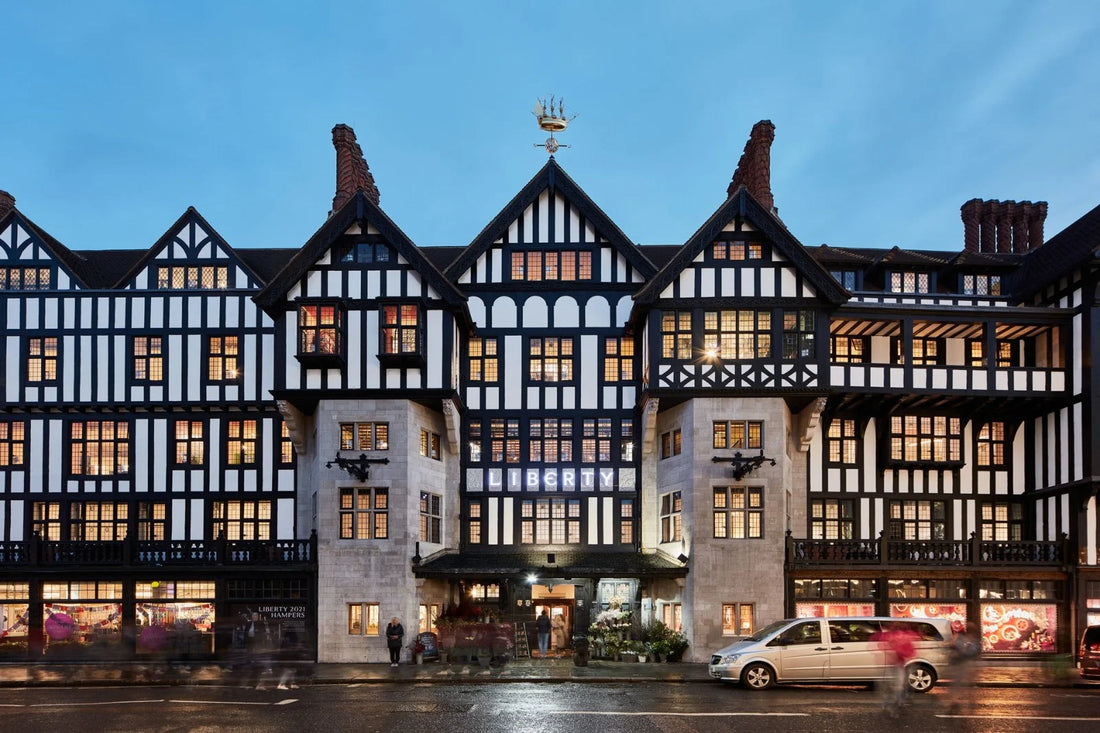
Liberty’s historic home
In the year leading up to London Design Week, the shared values of PBP and Liberty naturally brought us together. We Zoomed with the Liberty in-house buying team, led by Sarah Coonan and Tyrone Joseph. We planned a capsule collection to showcase a handful of our makers. CEO Adil Mehboob-Khan, an early supporter of the project, expressed that although Liberty has always been a patron of craft, it has been challenging to commercialize it. With this in mind, our team worked closely to find the right makers to meet the design ethos of Liberty—brands that would look and feel at home at Liberty, and ones that would be economically viable and could help foster lasting relationships. As Joseph had expressed, he didn’t want to take the “one-and-done” approach of many mainstream buyers in recent years. Ultimately, we launched with a collection of inspired, hand-crafted products from seven sustainably-minded makers representing six countries—Itza Wood (Guatemala), Siafu Home (Kenya), Pais Textil (Peru), Fors Studio (Canada), LYChee (Türkiye), andJacob (Mexico) and FieldKit (Canada).
To commemorate the launch, I traveled to London with founders from Itza Wood and Siafu Home to speak about the Future of Craft during Design Week. The conversation revealed that the world needs sustainable products made with purpose, beauty and lasting quality. The talk also centered on the issues of today’s makers, including living wage and lack of access, and how it’s going to take wholesalers like PBP and retailers like Liberty working together to solve these challenges.
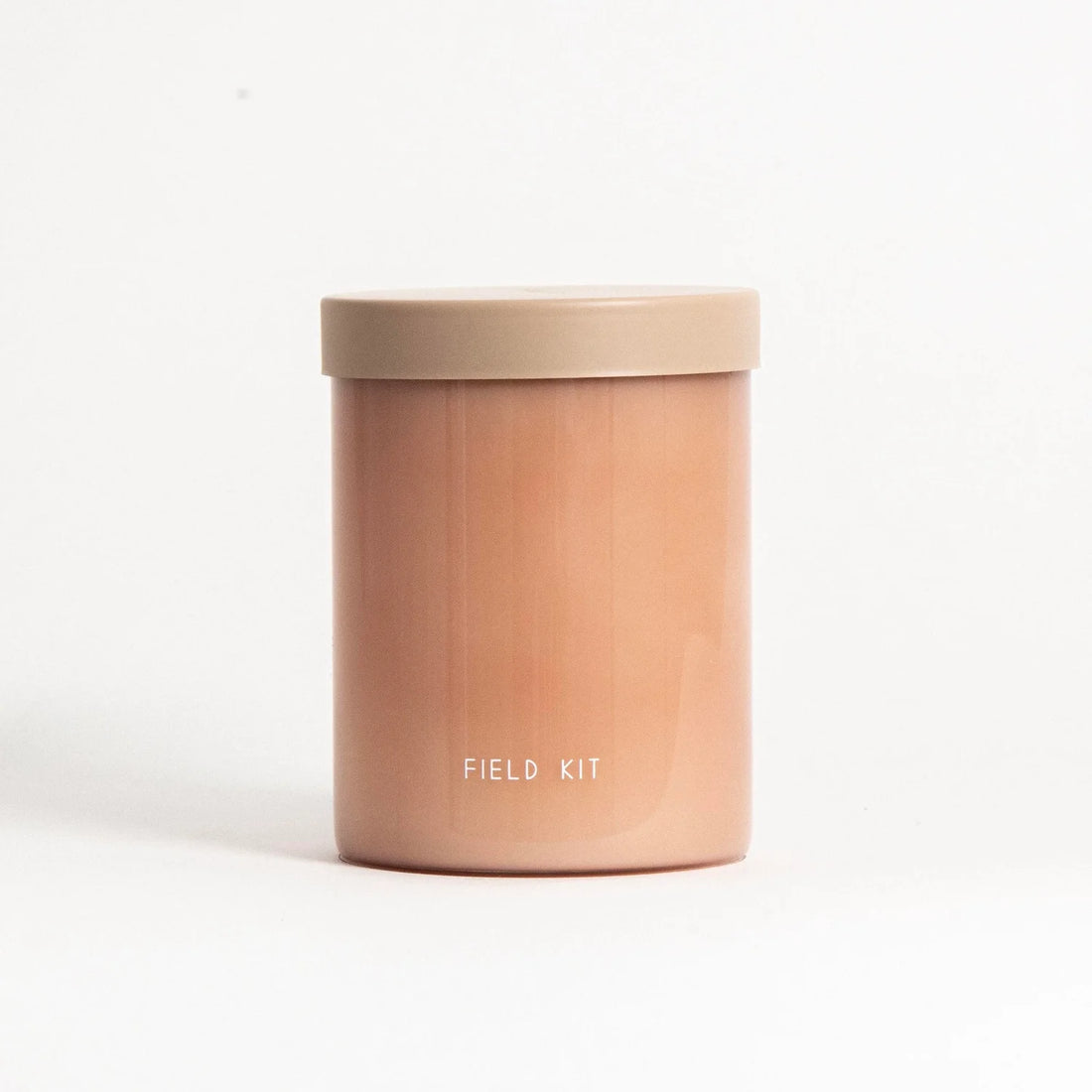
Field Kit
During my time in London, I also visited Liberty’s in-house design studio, where the team draws from a 45,000-strong archive and creates new designs. For a design obsessive like me, the studio was heaven—strewn with fabric clippings, hand-painted paperworks and CAD drawings. Liberty’s design team not only reaches back to, say, the decade tenure of legendary design consultant Bernard Nevill during the 1960s, but also what’s next, as demonstrated in its FuturLiberty collection of textiles that were designed in collaboration with interior designer Federico Forquet and the in-house team led by Andrea Petochi and launched during the 2023 Salone in Milan.
It is brands like Liberty, perhaps, who are best positioned to evolve—ones whose rich sense of history has readied them for the future. And it is the mission of Powered by People to clear the path of obstacles so sustainable, quality-minded makers can capture their moment in the spotlight.
11 Must-Have Holiday Gifts
Tis the season for standout finds. Unwrap our top holiday picks
Read moreThe Woven Wall
For Mexico-based maker KREYÉ, the artistry of craft represents both beauty and commerce
Read more

